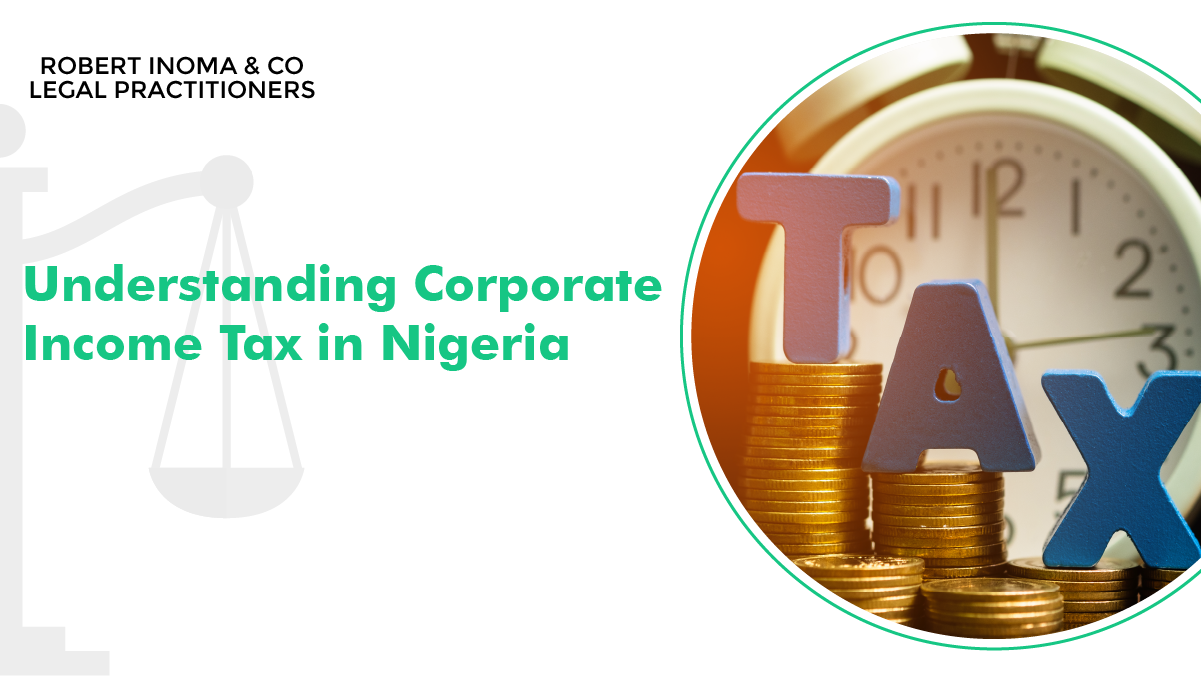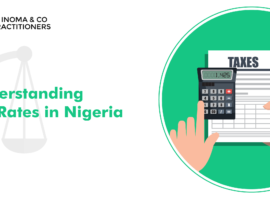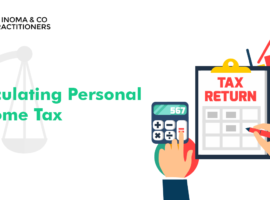Understanding Corporate Income Tax in Nigeria
Company Income Tax (CIT) is the levy imposed on the profits of all registered companies in Nigeria. The tax also applies to foreign entities who carry out business activities in Nigeria. It is paid by all limited liability companies in Nigeria (where public or private). CIT is regulated by the Company Income Tax Act (CITA). The Acts regulates all taxations for companies in Nigeria. Company Income Tax is administered and collected by the Federal Inland Revenue Service (FIRS).
Companies that are resident in Nigeria are expected to pay the corporate income tax on income received whether in Nigeria or another country. While foreign companies which carry out any business in Nigeria, are expected to pay CIT only on the income received in Nigeria
Contents
Classification of Assessment In Company Income Tax in Nigeria
Company Income Tax in Nigeria is assessed in the following ways:
Self-Assessment of Tax Payable
This form of assessment is a system whereby a company is permitted by the FIRS to calculate the company’s chargeable income and pay in instalments. It is a method where the company correctly computes its tax return and submits it with other documents at the appropriate time to the relevant tax authority. Self-assessment of tax payable is provided in the CITA. According to Section 53 of the CIT Acts every company filling a return shall‐ “ in the return, compute the tax payable by the company for the year of assessment; and forward with the tax return, evidence of direct payment of the whole or part of the tax due into a bank designated for the payment of tax”.
Best of Judgment (BOJ)
In this method, the company’s tax is assessed by the FIRS. More often than none, this method is done when a company has not submitted its financial records/ returns to the tax authority. It may also be done when a company’s submitted financial records seem unreliable.
The Currency of Assessment
The currency of assessment of payable tax is provided in the Company Income Tax Act, under Section 54. It states that “notwithstanding anything to the contrary in any law, an income tax assessment under sections 52, 53 or 55 of this Act shall be made in the currency in which the transaction giving rise to the assessment was effected”.
In Nigeria, Company income tax is charged at 30% on all companies that have more than N100 Million Naira turnover. For companies with a turnover of N25 million to N100 million, company income tax is charged at a 20% rate. According to the Finance Act (2019), companies will less than N25 million turnover are exempted from paying company income tax. CIT is usually assessed on a preceding year basis.
A non-resident or foreign company that has a permanent establishment in Nigeria is liable to pay CIT on all incomes attributed to the permanent base. Such companies are required to register and file their tax returns for their proceeds in Nigeria.
Charge of Company Income Tax in Nigeria
According to Section 9 of the Company Income Tax Act, the CIT for each year of assessment is to be paid on all profits of any company received in Nigeria in respect of :
- Any trade or business for whatever period of time such trade or business may have been carried on;
- Rent or any premium arising from a right granted to any other person for the use or occupation of any property; and where any payment on account of such rent as is mentioned in this paragraph is made before the expiration of the period to which it relates and is included for the purposes of this paragraph in the profits of a company, then, so much of the payment as relates to any period beginning with the date on which the payment is made shall be treated for these purposes as accruing to the company proportionately from day to day over the last‐mentioned period or over the five years beginning with that date, whichever is the shorter;
- Dividends, interests, royalties, discounts, charges or annuities;
- Any source of annual profits or gains not falling within the preceding categories;
- Any amount deemed to be income or profit under a provision of this Act or, with respect to any benefit arising from a pension or provident fund, of the Personal Income Tax Act;
- Fees, dues and allowances (wherever paid) for services rendered;
- Any amount of profits or gains arising from acquisition and disposal of short‐term money instruments like Federal Government securities, treasury bills, treasury or savings certificates, debenture certificates or treasury bills, treasury or savings certificates, debenture certificates or treasury bonds”.
Allowable Deductions under Company Income Tax Acts in Nigeria
In the Corporate Income Tax Acts, there are certain deductions from CIT that are allowed. According to section 24 of CIT, these deductions are allowed in determining the taxable profits of the company. These deductions are to be made before the taxable profit is calculated.
The deductions include:
- “Any sum payable by way of interest on any money borrowed and employed as capital in acquiring the profits;
- Rent for that period, and premiums the liability for which was incurred during that period, in respect of land or building occupied for the purposes of acquiring accommodation occupied by employees of the company.
- In the case of any property-holding company, expenses attributable to the maintenance of the property, directors’ remuneration, which shall not exceed N10,000 per annum in respect of each director, and the number of directors to be so remunerated shall in no case exceed three;
- Any outlay or expenses incurred during the year in respect of salary, wages, or other remuneration paid to the senior staff and executives cost to the company of any benefit or allowance provided for the senior staff and executives which shall not exceed the limit of the amount prescribed by the collective agreement between the company and the employees.
- Any expenses incurred for repair of premises, plant, machinery or fixtures employed in acquiring the profits.
- Bad debts incurred in the curse of a trade or business proved to have become bad during the period for which the profits are being ascertained.
- Any contribution to a pension, provident or other retirement benefits fund, society or scheme approved by the Joint Tax Board under the powers conferred upon it by paragraph (g) of section 85 of the Personal Income Tax Act”.
Taxable Profit in Nigeria
To calculate the taxable profit, you must first calculate the adjusted profit. The adjusted profit is derived after adding disallowed expenses and deducting allowable expenses and incomes exempted. The value derived will be the adjusted profit. An education tax rate of 2% rate can be deducted from the adjusted profit.
After arriving at the adjusted profit, you can now compute the taxable profit. Taxable profit is arrived at, after adding the balancing charge to the adjusted profit and subtracting both the capital allowance and loss relief. After arriving at the taxable profit, you can now apply the relevant company income tax rate to it. If you need a tax consultant to help you in sorting your books and dealing with all your tax-related issues, you can contact us.
Conclusion
Every registered company in Nigeria is obligated to pay the corporate income tax. CIT is at the rate of 30% for companies with N100 million or more turnover, and at the rate of 20% for companies with N25 million to N100,000 turnover. While companies with less than N25 million turnover are exempted from CIT.
Besides Company income tax, companies in Nigeria are obligated to pay Withholding tax, Value Added Tax (for certain goods and services), education tax, and industrial training funds when applicable to the company. Robert Inoma has professional lawyers with decades of experience in tax consultancy, corporate law, trademark, patent, and other intellectual property rights. Visit www.robertinomalaw.com to get started today.




